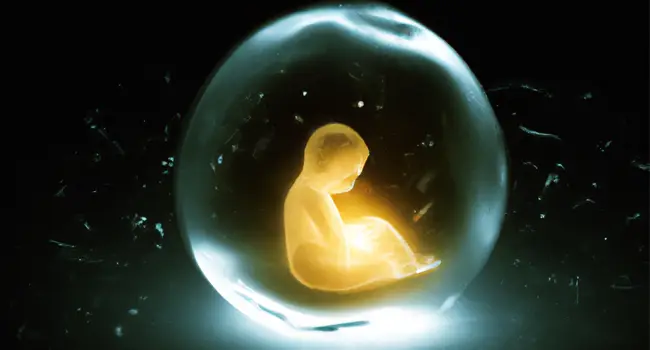Artificial Womb

In recent years, the concept of artificial wombs has become a topic of discussion in the scientific community. An artificial womb, also known as a neonatal incubator, is a device that mimics the conditions of a mother's womb in order to sustain the growth and development of a fetus outside of the mother's body. The idea of an artificial womb is not a new one, as scientists have been working on developing such technology for decades. However, recent advancements in medical technology and our understanding of fetal development have brought us closer than ever before to making this a reality.
The benefits of artificial wombs are numerous. They could provide a solution for women who are unable to carry a pregnancy to term due to medical conditions or other factors. Artificial wombs could also eliminate the risks associated with traditional pregnancy and childbirth, such as hemorrhaging, infections, and complications due to pre-existing medical conditions. Artificial wombs could potentially improve the health outcomes for premature infants. Premature infants are often born with underdeveloped lungs, which can lead to respiratory distress syndrome and other health complications. By providing a controlled environment that mimics the conditions of the womb, artificial wombs could provide premature infants with the time and support they need to fully develop their lungs and other vital organs.
Despite the potential benefits, there are also concerns surrounding the development and use of artificial wombs. One of the main concerns is the ethical implications of growing a human being outside of the mother's body. Some argue that the use of artificial wombs could lead to a devaluation of human life, as the process of pregnancy and childbirth becomes increasingly disconnected from the mother's experience. Others worry that the development of artificial wombs could lead to a situation where parents could choose to have their child grow and develop outside of the mother's body, rather than in the traditional way. This could have far-reaching implications for our understanding of parenthood and the family unit.
Another concern is the potential for artificial wombs to be used for nefarious purposes. The ability to grow and develop a human being outside of the mother's body could be exploited for human cloning or other unethical practices.
Despite these concerns, the development of artificial wombs remains an area of active research and exploration. As our understanding of fetal development and medical technology continues to advance, it is possible that we may one day see the development of a functional artificial womb.
Ultimately, the use of artificial wombs raises important questions about the nature of parenthood, the ethics of reproductive technology, and our relationship to the natural processes of life. As we move forward with this technology, it will be important to carefully consider these questions and ensure that the development and use of artificial wombs is done in a responsible and ethical manner.
Artificial Womb Articles and Web Sites
I search the internet daily for new articles from around the world that interest me or I think will interest you. My hope is that it saves you time or helps students with their assignments. Listed by most recent first, dating back to 2005.
-
Womb transplants are now a life-changing reality. Here’s how the extraordinary procedure works from BBC Focus
-
Lab-grown babies could be a reality as soon as 2028, scientist claims from New York Post
-
Womb with a view: EctoLife baby farm eliminates pregnancy and labor from New Atlas
-
Artificial wombs and gene editing: What are the new frontiers in IVF? from SMH
-
Researchers Have Grown a Mouse Embryo in a Bottle from Freethink
-
Should we grow babies in artificial wombs? Freethink video
-
We must prepare for artificial wombs, say bioethicists - bioedge.org
-
What is an artificial womb and can it work for humans? - screenshot-magazine.com
-
Human babies born using an artificial womb ‘possible in a decade’ - Metro
-
Bioethicists Urge a Grotesque Abuse of Animals - Evolution News
-
Why discovery of artificial womb will be monumental - DailyO
-
Ectogenesis: a brave new world? - Varsity
-
What to Expect When You’re Expecting a Baby Grown in an Artificial Womb - Motherboard
-
Nurturing Controversy: The Real Science Behind the Artificial Womb - Undark
-
12 Ways Artificial Wombs Will Change The World - The Federalist
-
Artificial wombs could liberate elite women at the expense of the reproductive classes - New Statesman
-
Artificial wombs could soon be a reality. What will this mean for women? - The Guardian - 09/17
-
Australian Researchers Have Used An Artificial Womb To Incubate A Lamb For The Second Time - Gizmodo - 08/17
-
Artificial Wombs - A Perspective From A NICU Mum - Huffington Post (opinion) - 05/17
-
Artificial Womb Technology: Who Benefits? - Big Think - 05/17
-
Scientists Are Growing Baby Lambs in Plastic Bags - Popular Mechanics - 05/17
-
How artificial wombs will change our ideas of gender, family and equality - The Guardian - 05/17
-
Babies made without mothers will come sooner than we think - Daily Mail - 01/17
-
From frozen ovaries to lab-grown babies: the future of childbirth - Medical Xpress - 05/16
-
Artificial, Womb-Free Births Just Got a Lot More Real - Motherboard - 05/16
-
Artificial Placenta Holds Promise for Extremely Premature Infants - University of Michigan - 05/16
-
The End of Pregnancy and the inevitable rise of the artificial womb - Slate - 10/14
-
Motherhood: Immaculate gestation - The Last Word on Nothing - 05/12
-
Artificial 'Womb' Unlocks Secrets of Early Embryo Development - Science Daily - 03/12
-
Why Not Artificial Wombs? - The New Atlantis - 09/03
-
Artificial Womb Web Sites
-
Artificial uterus - Wikipedia
-
Ectogenesis - Wikipedia
-
Artificial womb - Future Wikia

